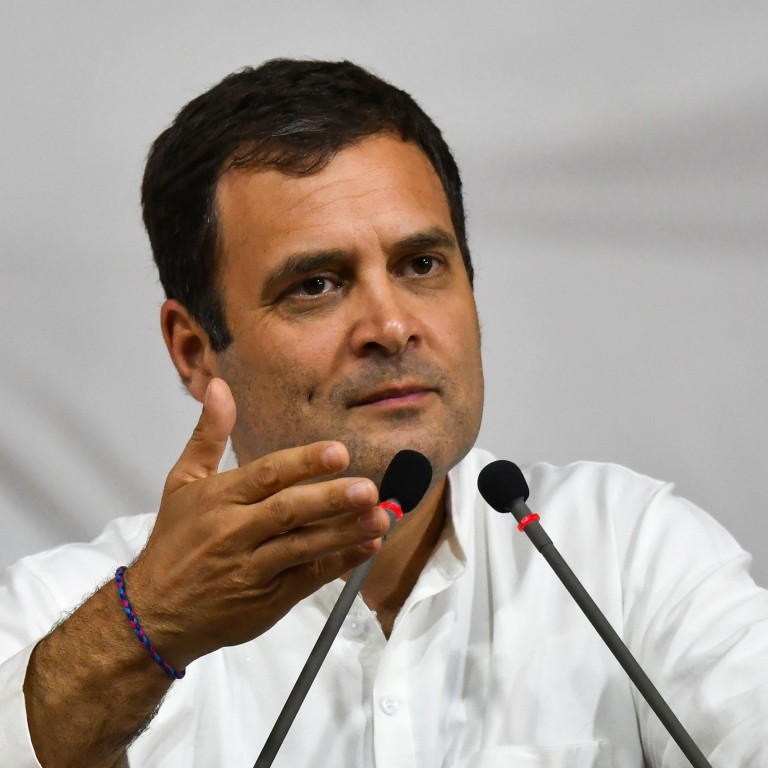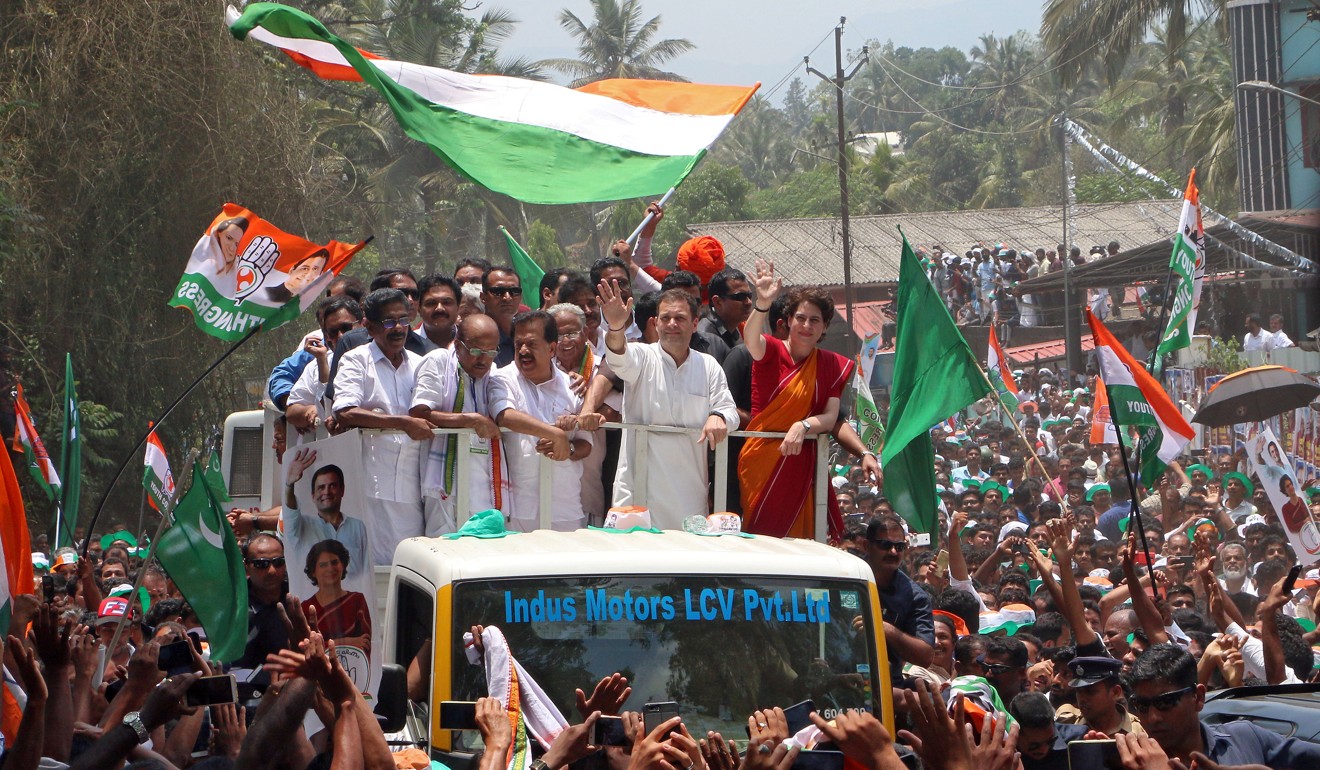
India elections: Why Rahul Gandhi is looking south for support
- The Congress party leader has turned his attention to Wayanad in the southern state of Kerala
- But can victory there really help him in his electoral battle against incumbent Prime Minister Narendra Modi and the Bharatiya Janata Party?
The reason for this decision is not immediately obvious. Sanjay Kumar, director of the Centre for the Study of Developing Societies (CSDS) in New Delhi, said he does “not think there was any strategy or long-term plan” to the choice – though it may have come about because “there was some uncertainty” about whether Gandhi would win in Amethi this time around.
The Congress party leader won with a majority of 107,903 votes in 2014 – a wide margin, but fewer than one-third of the 370,748 votes he garnered in 2009.
India election: Modi, Gandhi and the Chinese dragon in the room
That was partly down to anti-incumbent sentiment, as Congress was the party of power at the time, and partly because of the popular former TV star that Modi’s Bharatiya Janata Party (BJP) fielded against him. Smriti Irani, who went on to become a member of Modi’s council of ministers, is in the running for the seat again this year.
Which might explain why Gandhi has turned his attentions southwards, to the part of the country least accepting of a second Modi term, according to a pre-poll study carried out by the CSDS.
Congress has said Wayanad is important because of its geographical position near the junction of three states – Kerala, Tamil Nadu and Karnataka. These three “feel that they are not being included in the decisions of this country”, Gandhi said at the launch of his party’s manifesto earlier this month.
“I wanted to send a message to South India that we are with you and we are standing with you,” he said.

Hindu nationalist Modi, however, has accused his opponent of going “out with a microscope to look for a safe seat to contest … where the majority is in the minority”, referring to the fact that only 41 per cent of Wayanad’s constituents are Hindus, according to the latest available census data, while more than 44 per cent are Muslim and 12 per cent are Christian.
In 2014, the BJP won less than 9 per cent of the vote in Wayanad, relegating it to somewhat of a sideshow. Indeed, Gandhi’s main opponent in the constituency is likely to be a communist, which infuriates local Communist Party of India (Marxist) organiser Abdul Nisar.
“If Rahul Gandhi’s objective is to unite secular forces against the BJP’s communal agenda, why is he fighting my candidate, who is doing the same things?” he said.
“Why won’t he contest from Trivandrum? Rahul Gandhi is here only because he is losing in Amethi.”
Gandhi to cow vigilantes, fake news and ‘watchman’ Modi: India’s election explained
Congress and the communists are the dominant political forces in Kerala. Trivandrum, its capital, is among the state’s few constituencies where the BJP is a serious contender.
Which raises the question, according to Kumar of the CSDS, “Why Wayanad, and why Kerala, where the BJP is not a significant presence?”
He said Gandhi did his party a disservice by not opting to stand for election in a state such as Karnataka, where the race between Congress and the BJP is much closer.
Traditionally, Modi’s party does not do very well in the south of the country anyway – kept out of power in most places by regional parties with a more localist agenda.

And Gandhi taking votes away from these parties – such as the communists, with whom Congress has electoral alliances in other parts of the country – is unlikely to help him much in his nationwide battle against the BJP, according to Kumar.
“There is no indication that [him] contesting from Wayanad will revive Congress in the southern states,” he said.
“At the moment, the [party] is finding it difficult to explain the choice of this constituency.”
Gandhi’s supporters in Wayanad, however, were just thrilled to see him campaigning there.
Jimmy Thomas did not believe his friends who live abroad when they messaged him with rumours that Gandhi was considering standing for election in his hometown.
“My first reaction was to scoff at them. There was no way this was possible,” he said from among the crowd watching the 48-year-old scion of the Nehru-Gandhi family speak on April 17.
“He doesn’t even have to campaign here. It will be an honour for us to ensure his victory by a record margin.”
Wayanad goes to the polls on April 23 and Amethi on May 6. The results of the Indian elections are expected to be declared on May 23.


